I have been trying for years to get hold of Mahler Das Lied with Jessye Norman and Jon Vickers, Colin Davis conducting. It was not greatly admired as Vickers, even 30 years ago, was clearly past his best. I had it on a Phillips LP disposed of 25 years ago; but have now run it to earth second hand. The DG/Universal site supposedly had it available to download, but no dice, nothing to click to make it happen.
It is all round better than I had recalled. Vickers does fairly well in the first song, apart from being unable to articulate the grace notes, which he fudges. But he achieves the epic quality it needs and the doom laden atmosphere is well evoked. In the third, Davis is much too fast and Vickers wild. The fifth song is rather better paced allowing Vickers the verbal acuity he was famous for. But he does suddenly blast a couple of phrases at you. Ten years earlier, but then Norman would not have been his partner.
This was Norman's first take on the work, I have long enjoyed her plushness in the much later Levine version. Here in the second song, 'The Lonely One in Autumn', Davis produces a chilly, remote atmosphere. In the forth, there is a sensible speed for the young men on their horses and a lot of detail laid out both in the orchestra and by Norman. The final song is very long at 35 minutes, it holds together and the LSO players are characterful, filling out the plangent woodwind phrasing, Davis encourages some rasping brass chords. Despite it being a song symphony, the long orchestral passage half way through that last song is often my favourite part and Davis encompases a whole symphony in the passage. Mystery and regret heavily emphesised. It is moving and Norman's voice fits the piece as well as any, solemn, reflective, burnished.
The sound is excellent and close and detailed. I think the disc has been underrated, not perfect, but certainly worth looking out for.
'1685 and the art of Ian Howell'.
1685 was the birth year of Bach, Handel and Domenico Scarlatti. So there is plenty of scope here to range across masterpieces that can be tackled by the countertenor. The disc starts with Scarlatti's Salva Regina. The only other recording I have of this piece is by Janet Baker and she had that gift of injecting meaning and emotion into any phrase or word she chose. The melismatic repeated opening words are a case in point. So, from the off Howell tells us he is highly musical, phrasing terrifically well, has excellent breath control and sings with taste. He is not up for providing the ultra expressive experience that was Baker's hallmark. Arguably the older and slower recording makes too much of a meal of it. But it packs an emotional punch that this new performance is not aiming to emulate.
But the piece comes up fresh and the purity of the voice is a pleasure to listen to. The tone is sweet. He reminded me of Alfred Deller; but more substantial and obviously with a wider range. I would welcome more weight of tone and the balance on the recording sometimes felt like the voice was not given sufficient prominence.
He is accomplished without being outright virtuosic, some scale work sounds careful rather than tossed off. I enjoyed his performances, regard them as a find and will watch out for this singer. He has a thriving international career. The rest of the well filled disc includes all of Bach's Cantata BWV 170 Vergnugte Ruh, now so well recorded but bearing for most older listeners that indelible stamp of Baker in her prime. But we can't keep harking back as though there was only one legitimate way to sing these works. Here the opening aria is taken swiftly, it ripples along, with beautiful playing from the American Bach Soloists.
Handel is well represented by arias from Saul, Rinaldo, Giulio Cesare, Serse and Orlando. Well performed, the singer does not efface the likes of Daniels or Scholl.
Generous samples are available on his site:
http://www.ianhowellcountertenor.com/live/
It will be interesting to see how this singer develops.
Jonas Kaufmann: German Opera Arias. Mahler Chamber Orchestra: Abbado.
Within seconds this recital grips you and you know you are in for something well beyond standard expectations. Lohengrin's 'In fernen land' opens with a few moments of silken strings, then the voice steals in, the legato is faultless, the timbre is dark, the sound gradually expands from the gentle opening to the declamatory final bars. An arc of sound and of narrative drama. I cannot imagine a recital with a better start.
He then moves onto the subsequent aria 'Mein lieber schwan'. At once the longing, the regret, then anger, again that narrative pull. This singer projects the character, no mere singing lesson, a three dimensional presentation of the inner journey Lohengrin takes.
Clearly Kaufmann is tough minded. He has pretty much dictated the format of the programme. Starting with Lohengrin, ending with extended extracts from Parsifal. In between some Mozart, some Schubert, Fidelio and Walkure. It is not at all a typical romantic German Arias disc. One 10 minute extract of Zauberflote includes the long duologue with The Speaker. Not at all an obvious choice. Here the tone is full and open. This is a Tamino on the heroic side. He has not quite the sweetness of his idol Wunderlich, but he has more heft and pays more attention to words.
He caresses the second Schubert aria, surely he would be a great lieder singer with the detail he brings out in phrasing and wordpainting. But perhaps the voice will soon be too large. He has been careful to retain Tamino, but will in all probability lose the role as he increasingly takes on the heavier roles. He looks ahead in the linear notes to explain that although Tristan still lies a long way ahead, other Wagner roles impend. I hope that as more Wagner enters his repertoire he can escape the beat in the voice that would so affect the kind of pure sound he presently makes.
Another highlight is the aria for Florestan. That begins with a rare and hair raising dispair. The initial note coming from somewhere far, far away, then ripping the air with its increased intensity. He again takes us on that journey into the thoughts of the man.
By now expectations could not possibly be higher: Wintersturme: somehow it sounds to my ears slightly effortful, there is not quite the liquid ease I expected in getting round those notes near the start. As the aria progresses into the areas of forte and slow moving notes, it warms up. Here I missed that matchless intimate ardour of Melchior. The only occasion when I was thinking of another singer throughout this demanding and contrasted recital.
I hear the occasional parched note, especially when descending on a third from a higher note. He has a baritonal quality and a lot of the most enduring tenors have that. The bottom is rich, the top gleams.
I hope that he gets a chance to record the bulk of these works complete, especially in Fidelio and Lohengrin. I don't generally collect the work of many tenors, Vickers, Bjoerling are exceptions, but I add Kaufnann for the steady, open, round tone and especially for the intelligence and commitment he displays. He has that special skill to draw you in and to hold you.
Abbado is a wonderful accompanist, he moulds the pieces and had at least some influence on the programme. The sound of the recording is open and forward. Time now to search out some more of his work. I am at last hooked.
Classical singing is not a natural process. People generally can sing a bit; but they do not just toss off Lucia's Mad Scene....even the women. It is no more natural than the relationship between Olympic runners and someone who runs to catch a bus.
So, when people claim the countertenor voice is not natural, I cannot really see their point.
All this is make way for a disc by David Daniels, possibly the best countertenor around. After quite a gap, he has now produced a new solo disc. Bach arias. In part this is an opportunity missed. The recital includes Ich Habe Genug and Vergunte Ruh...we get only part of these marvelous cantatas. I don't know what I would have got rid of to make room, but entire cantatas would have been very welcome. Daniels can be a little bland with the words, but here, he does use them and these are detailed thoughtful interpretations.
His voice is as full of sap and flexible as ever; but he does not overload the Bach with outright sweetness in the way that is more appropriate to Handel. So, no signs of a decline. He is expressive, but not in terms of the tone deployed. His expressiveness involves word pointing, phrasing and variations in volume. The tone is pretty much set, he does not use colour; what you initially hear is what you get.
I am glad to see he has reverted to Harry Bicket to accompany him, rather than the occasional speed merchant Fabio Biondi. The later was responsible for destroying Daniel's recording of the Pergolesi Stabat Mater by bashing through it as though it were a fast military march.
The English Concert are the orchestra and they are well forward in the sound picture and provide a lot of pleasure.
As well as the arias mentioned above; Daniels gives us the expected pieces from the B Minor Mass and the St John and St Matthew Passions. A very beautiful disc; I recommend it.
Heather Harper is a name which is not much mentioned these days. Like Teresa Berganza, her work was much admired, but since retirement her recordings often languish. She recorded a number of well thought of performances. I think of her primarily as a Mozart, Handel and Britten singer, though her range went to Wagner to Verdi and, as here, Richard Strauss. Her Indian Summer contribution in the Hickox Britten 'War Requiem' is especially fine, so too Ellen Orford in the Davis version of Britten's 'Peter Grimes'. The Female Chorus role in 'The Rape of Lucretia' is wonderfully voiced. Her live Hunting Fathers and 'Les Illumination' was caught on the wing and unequaled.
I was looking for copies of Leontyne Price singing Strauss 'Four Last Songs'. I am still waiting for the Price disc; but while searching I came across this disc. Harper recorded the Four Last Songs twice, this is the second one, dating from 1988, she was 58.
Is it any good? Yes, it certainly is.
The performance is on CFP which cost me less than £4 with free postage! The silly price, did not encourage me to lower my expectations or judgement calls. This joins Schwartzkopf, Janowitz, Auger and Norman, who are my first recommendations depending on what you want out of the pieces. It comes ahead of Studer, Fleming, te Kanawa, Della Casa and Isokoski.
This is not just based on voice alone. Richard Hickox steers the LSO through the songs providing an underlying pulse for each which moves them along but not at the expense of expressiveness. The orchestra shimmers and is mellow, there is lots of detailed phrasing within the pulse. Harper at a relatively advanced age does not put a foot wrong. Some German vowels sound on the harsh side; apart from this the silvery soprano, ample and warm, sounds in terrific condition; high soft, high loud, diminuendo, nothing seems stressed. It is a distinctive voice, she does not vary tone much, but is expressive with words and volume. It is a fully formed thought through performance and there is nothing of the routine about it.
Accompanying the set we have 12 orchestrated Strauss songs. She includes about four that were new to me; a bonus as I have quite a few discs of Strauss songs. The programme is a delight and as the conductor does not get lost in cream-puff land, they do not pall. The programme lasts just over an hour and I was left wanting more, to the extent I played it straight through twice, then again the next day.
============================================
I was looking for copies of Leontyne Price singing Strauss 'Four Last Songs'. I am still waiting for the Price disc; but while searching I came across this disc. Harper recorded the Four Last Songs twice, this is the second one, dating from 1988, she was 58.
Is it any good? Yes, it certainly is.
The performance is on CFP which cost me less than £4 with free postage! The silly price, did not encourage me to lower my expectations or judgement calls. This joins Schwartzkopf, Janowitz, Auger and Norman, who are my first recommendations depending on what you want out of the pieces. It comes ahead of Studer, Fleming, te Kanawa, Della Casa and Isokoski.
This is not just based on voice alone. Richard Hickox steers the LSO through the songs providing an underlying pulse for each which moves them along but not at the expense of expressiveness. The orchestra shimmers and is mellow, there is lots of detailed phrasing within the pulse. Harper at a relatively advanced age does not put a foot wrong. Some German vowels sound on the harsh side; apart from this the silvery soprano, ample and warm, sounds in terrific condition; high soft, high loud, diminuendo, nothing seems stressed. It is a distinctive voice, she does not vary tone much, but is expressive with words and volume. It is a fully formed thought through performance and there is nothing of the routine about it.
Accompanying the set we have 12 orchestrated Strauss songs. She includes about four that were new to me; a bonus as I have quite a few discs of Strauss songs. The programme is a delight and as the conductor does not get lost in cream-puff land, they do not pall. The programme lasts just over an hour and I was left wanting more, to the extent I played it straight through twice, then again the next day.
============================================
Elizabeth Schwarzkopf: Strauss Four Last Songs plus 12 others. George Szell.
I find it difficult to be objective about these performances. Those of the Last Songs I have known for over 40 years. This recording with the Radio Symphony Orchestra Berlin was my introduction to these pieces. I have long neglected it on my shelf in favour of Janowitz, sometimes Auger, Norman...and several others. But I returned to it and the magic was immediately there. It is a classic recording and will always be admired and loved.
As we often suggest, the first performance we hear of some pieces imprint themselves on us. In a great performance such as this, as you listen, you wonder how it could be done any other way.
Several recordings of Schwarzkopf in these songs have surfaced, I have two. In the earlier, I have read that her voice was fresher and that you can detect that....well, I can't. This Szell was made in 1966, she was about 50, so possibly the voice was indeed no longer quite as easeful at the top, but so marginal are the 'problems' as to be a nit picking exercise.
There is an alchemy about this recording, the performance draws you into its half light, its nostalgia, the glow of autumn. A very special atmosphere is sustained. The pacing is sensible, neither too fast or slow. Szell phrases beautifully and provides an ebb and flow without losing the arch of each song.
Schwarzkopf was often criticised for being arch, for overworking the words or phrasing, but here, in this highly un-natural art form, it all sounds natural and 'right'
The rest of the programme comes from the same sessions plus six from another Szell session in 1969, this time with the LSO. The sound matches well across the tracks. Most of these additional songs stick to what are now well trod paths. Not all are in orchestral arrangements by Strauss, but were authorised by him. One that is, is Morgan; a song written as a wedding gift for his wife. Here the voice is perhaps not quite as fluid as would be ideal, but what a lot of compensations there are as we receive from a singer long steeped in this material.
A beautiful disc, described by someone as "slush corner". Perhaps the teeth would fall out on a constant diet of such luscious beauty....but then, having held these sounds in my head since childhood, I am not really the objective guide you might need before you commit to a further debit from your bank account.
I have just got hold of a new issue....by a dead singer. Lorraine Hunt-Lieberson. A singer I would even listen to if she had recorded the phone directory. This disc is issued under the Avie label. It consists of arias by Bach and Handel performed by Hunt Lieberson and for the most part conducted by her long time collaborator, Craig Smith. He also died young. The indication is that there may well be more from this source, I hope so. The performances are live from The Emmanuel Archive 1992 to 1999.
The actual sound is immediate and rich, the voice three dimensional. This is the kind of balance I like.
Initially I did wonder just what they were playing at. The first aria is Bach 'Kommnt angelochten Sunder' from Cantata BWV30. It is a lilting dance, basically a call to the Faithful to get on with it! Here we open with a dirge, it sounds disastrous; almost half the normal speed. Then the singer enters and the approach is redeemed. She turns it into a meditation, depth, tenderness, a beauty that is about more than pure sound, it conveys things in itself. Suddenly the slow speed makes sense. However, very few singers could bring it off.
Nothing else is taken at an eccentric speed. After that benediction, we get all the major arias for Dejanira from Handel's Hercules. Here the voice shines and gleams. She goes through the gamut from love to anger, despair and madness. I have the Minkowsky set with Von Otter. He really charges the piece with drama to the hilt. The approach here is more measured and the singer is the focus for the drama. It is an inspired string of Arias and she does them justice.
Finally Back to Bach. One substantial aria from Cantata No 33. almost 11 minutes, yet concentration never flags. An aria of comfort. She uses very rich tone, the music almost sounds extemporised and with Bach, I regard that as the most successful possible kind of performance. In its length it unrolls before you as though it was just being created, long breathed, hypnotic and a fitting piece to leave us with. The music hangs in the air, the pizzicato echos in the head long after.
I have several of the EMI Debut recitals. I thoroughly recommend the following two.
Firstly, Katerina Karneus accompanied by Roger Vignoles.
Karneus won Cardiff Singer of the World in 1995, It is a mystery to me as to why she is not a high profile star. I have seen her as Octavian and she was superb. An excellent actress, she has a great touch with comedy.
This is a rich voice, but it can scale the heights with an almost soprano tone. Lots of light and darkness. She characterises songs telling a story vividly. The voice is well schooled and she did record an excellent Nuits d'ete that was attached to the BBC Music Mag, but otherwise it is unavailable.
In this recital she has, as do others, mixed standard repertoire with some esoteric material. Richard Strauss, Mahler and Joseph Marx.
I will not give a blow by blow description, but especially like the Mahler, various Knaben Wunderhorn songs, not all from the common collection, indeed some rarely recorded songs that make a nice change and a contained grave and beautiful reading of the Ruckert Lieder.
Vignoles is a real partner and he especially provides an ebe and flow.
The Marx songs are very much in the late romantic German tradition with a twist in the harmonic language. Karneus delivers them with real feeling and detail. He insists on a wide range in the songs and as indicated, this singer has no trouble with the huge leaps and throws the ribons of melody into the air, to let them hang there.
Another Debut disc, this time from a singer who may well be familiar. Alice Coote. She was singing Sesto at the Met last week. But I have several times read that she has cancelled concerts at short notice. Usually a real risky thing for an up and coming sinder, but, there she is at the Met.
This is a darker voice, grainy, vibrant, a highly individual timbre. An intelligent singer. Her recital is a fairly extraordinary collection of pieces that in the UK are pretty much regarded as Janet Baker territory, She throws down the gauntlet. At no point did she remind me of Baker, she is working them through for herself.
Mahler songs from Knaben Wunderhorn
Schumann Frauenliebe und leben
Mahler Ruckertlieder
Hayden Arianna a Naxos
The general tone of the recital is quite grave, Julius Drake is a real poet of an accompanist. He creates moonlit landscapes and matches Coote's range of volume. My own feeling is that she does not communicate quite as directly as Baker, but she is very much worth listening to. In Ulricht she is not as hieratic as I like. But in general her Mahler very much suits her. The Haydn is arched well across the various recits and arias, it feels of a piece. She uses the words dramatically. Very much one of the coming voices and this, her first and very bold recital.
FInally for now in this series, I want to mention this one by another newcomer. Subsequent to this issue, she has recorded Marzelline in the new Colin Davis Fidelio and the soprano part in Rattle's Carmina Burana.
The singer is Sally Matthews. Although she is in fact quite an experienced singer, this is her first recital. She has a clear, clean, sweet soprano voice. It is a Pamina voice and this is one part she has sung. There is vibrato when needed and she floats the high notes really beautifully. Her singing is poised.
The disc comprises of a group of Schubert, a few Strauss, some Poulenc and one song by someone called Bachelet, who the booklet is silent about beyond telling us he is principally famous for writing opera!??
The disc opens with a very atmospheric version of Nacht und Traume, she is good at the seeming stillness at the centre of the song and the pianist is the sure footed Malcolm Martineau. He can usually be relied upon to prevent singers from any self indulgence. That group includes a beautiful timeless version of what was almost the last song Schubert wrote, The Shepherd on the Rock. The rippling Clarenet player is Thomas Watmough and altogether this track reminded me of the early recording made by Margaret Price. Litani is also included, again, she captures the stasis of that prayerful song.
The Strauss includes the lively and the gentle, almost inevitably, Morgan gets a run out, but so well done, it is sheer pleasure. There is also an extatic version of Cacilie with the pianist producing an orchestra of sound.
Turning to the Poulenc, she sings eight songs, they seem to be over in a flash, tangy and in what sounds to me like very good French.
Finally a five and a half minute song, Chere nuit by Bachelet. What a nice surprise, substantial in every way, late 19th century French with lovely arching melody and reminiscent of Faure.
Altogether a lovely disc.
I thought I would provide some comments on the new Colin Davis version of Otello, it is on the live LSO label. I recall reading a few years ago that a similar concert performance was being recorded with Jose Curia. I heard a live relay and Cura, though a controversial vocalist, he came across with plenty of character and feeling.
That 'recording' never surfaced. Instead we have another tenor, himself a substitute given a couple of days notice. He is Simon O'Neill. He sings in Wagner in amongst other places The Met. He has the heft, but I detect little character in either the vocalisation or in the basic voice itself. No doubt the audience was grateful for his appearance and it is normal to make allowances under such circumstances; but for a recording?
He is certainly not bad, but he completely lacks any Italianate quality, there is no savoring of the words. In my library he comes up against strong competition, Vickers principally. But I had much the same complaint on the otherwise outstanding Muti DVD Otello. Why do these trained singers seem so relatively clueless over what to do with the words? Why are we being confronted with such relatively anonymity. It is as though anyone with a high beefy voice is shoved into the part.
Well, that out of the way, everything else seems exceptionally fine and dramatic. The sound picture, the splendid choral contributions, wonderful brass. All the other singers sound inside their parts and sing well, though the Desdemona does provide a couple of obvious wrong notes, one glaring in her Act 3 solo. But it is a warm and sympathetic voice.
But; the real reason to get hold of this is the superb Iago of Gerald Finley. He has not really quite the heft of the standard Verdi baritone. But what an artist. His singing is utterly beautiful, but full of character. The legato is a wonder. He stands in the opposite corner from Tito Gobi who snarls marvelously and is a touchstone Iago in the Serafin version; but it is an equally valid reading of the part and not remotely bland.
I have enjoyed the sheer dramatic sweep and the forward sound. Really, everything is terrific if you can acccept at the centre of the opera the vacuum of an anonymous Otello.
Perhaps sometimes we ought to be able to rename it 'Iago', as Verdi was so tempted to.
Bryn Terfel........Bad Boys
How bad does a bad boy have to be to qualify here? Iago, Scarpia, Mephistopheles, well obviously, but Don Basilio....Dulcamara? I hesitated for some time before I bought this disc, not because the boys weren't bad enough, but because of the programming. Into the middle of a stream of classical villains and at least the unscrupulous, we find ourselves with Sweeney Todd, some Gilbert and Sullivan and a song from Les Miserables.
Not only that, but I can see no structure to the recital apart from the modern pieces being shoe-horned intothe middle; to give the discerning time to go make a coffee perhaps. However, I was lured by a low asking price.
Terfel is a favourite singer of mine and I have a fair few of his recordings. He is not just good with words, he is great. In recent years the condition of his voice has puzzled me. I heard a live relay of The Messiah from Wales a few years ago, his singing was painful. This was due to a pronounced beat in the voice on any sustained notes. I thought to myself, well, that's it, the Wagner Wobble has got him, it will be downhill now.
Subsequently I heard him live in the theatre as Wagner's Dutchman. He was utterly superb and the voice was in great condition, solid and full of colours.
On this disc we have a voice half way between these two experiences. The wobble is much in evidence in any middle range note of any length. The bottom is noticeably weak, strong and true at the top, but the variety of vocal colour I am used to is missing. The expressiveness is mainly a matter of phrasing, word use and volume. Perhaps his way of alternating phrases between a blast and a whisper has become a mannerism. There is pleasure to be had, but if this recital is a dispatch from the front line, then our soldier is far from fresh and possibly ailing.
With the bottom of the voice so noticeably weak, how does he manage Wotan so well? I recall reading an interview with Hotter, another singer with a perhaps variable lower range. He suggested that Wotan's most cavernous notes were well supported by the orchestra and that rather than pushing his voice, he would smite the stage with his spear at the critical moments. He said no one ever noticed he soft peddled those notes. But our bad boys here have no spear to deploy. However Terfel is well supported by orchestra, Paul Daniel as conductor and a chorus where needed.
There are two Mephistos here, Boito's and Gounod's. Both are given great gusto. A pity the Berlioz incarnation was not included, that would have provided a healthcheck on sustained legato singing, of which there is not really any here. Pizarro is well snarled through, Scarpia is very successful in portraying a man in total preoccupation, whilst around him the Te Deum thunders. Roderic from Ruddigore I enjoyed much more than I expected to.
Sondheim is a terrific wordsmith, but as a composer, he makes the music subservient to the words and produces streams of dry, secco recitative. I recently went to 'A Little Night Music'. Apart from 'Send in the Clowns', the rest would have been better handed over to a collaborator. I don't 'get' why he is so admired and although Sweeney Todd is gripping, the extract here does it no favours.
But the surprising failure here is Iago. I find it difficult to explain just what is wrong. His voice sounds curiously constricted. The Credo seems like it is sight-read, the concept splintered and the bluster is unconvincing. Here the whisper/blast combination sounds empty.
I explained that there was no logical shape to the recital. I imagine chronological programming would mean either opening or closing with the piece of merde from Les Mis and that really would not cut the mustard. So we open with Boito and close with Don Giovanni. A successful closing track, Giovanni is confronted by The Statue, Leporello hides under the table and Giovanni is defiant as he is dragged down to hell. Terfel has fun.
Christoff persuaded EMI to let him sing all three bass parts in Boris Godunov, here, Terfel sings all three parts in that penultimate Giovanni scene. His Statue is not really cavernous, but then that hope is so often postponed, but he differentiates his voice and he gets round the Mozart. A spectacular close to the disc, though in my head I then hear the opening chords of the final ensemble.
So, a mixed bag. I hope that next time round his voice is in a more refulgent phase. The silk has gone, the colours are flattened. Is Wagner to blame after all I wonder?
This disc combines 17 century pieces with Sicilian folk songs. The progress of the disc revolves around Mary's meditations looking at her child; she sees the pain of the future. The second part of the programme takes in the fulfillment of Mary's visions in the Crucifixion and finally, the resurrection.
The singing is divided between Nuria Rial, Philippe Jaroussky and the male quartet Barbara Furtuna, who provide an earthy tang to set against the pellucid sounds made by the others. There is enormous pleasure here, the orchestra is made up of about 25 musicians playing such as baroque guitars, psalterion, dulcimer, viole de gambe etc. Rich, but never overwhelming.
There is some extemporisation. Possibly the most famous piece here is Merula's 'Hor ch'e tempo di dormire' a hypnotic piece where the accompaniment rests on two notes, back and forth rocking as Mary envisions the child in her arms in his final pain. It is a remarkable piece. In this version, the musicians have provided some quite violent harmonies at the ends of some verses. It works, Rial's light soprano is a beautiful instrument; but although I enjoy this version, I prefer the austerity of the original as voiced by the plangent tones of Sarah Mingardo.
But there is so much to beguile here. It is not a procession of miserable and dolorous music any more than you might extract from Bach's music when covering the painful parts of the journey.
This is an original and marvelous progression of pieces, Rossi, Cazzati, Biber and many others. The colours glow, the melodies are sinuous. A really beautiful disc of mainly little known music.
Try this to get a flavour of the sounds........
http://www.youtube.com/watch?v=11POTypBh2I&feature=channel
Susan Gritton, BBCSO, Edward Gardner: Chandos
Finzi Dies Natalis, Britten
Les Illuminations, Quatre Chansons
Delius, Late Lark
My long treasured Dies Natalis with Wilfred Brown has suddenly been irking me; the 1930s received pronunciation distracted me. I decided to plump for this brand new version, which, featuring a soprano, would certainly be different. The premier of the piece was given by a soprano, so was clearly sanctioned by the composer. I was also attracted by the overall programme.
As a sequence it works beautifully.
Gritton has a soft, but firm and round tone. Her voice is forward, and forwardly recorded. Her way with the words does not get in my way.
The Finzi is regarded as his masterpiece. It is a very English idiom, pastoral, with a strong serving of mystical ecstasy on the side. There is an impulsiveness, not nervous energy, but certainly momentum that is curtailed with some gentle ruminations.
This is a good version, but it lacks the propulsion and sheer airiness of the older version. Although Gritton does not annoy me with her pronunciation, frankly she does not much flavour the words. The accompaniment is beautifully played and recorded, but the conductor is effective rather than inspired.
It is much the same in Les Illuminations: that last ounce of tang and virtuosity, of being on top of the piece is missing. Heather Harper on a BBC disc is a miracle of darting light. I want more savour of the words. There are lovely things here though.
The Quatre Chansons are extraordinarily accomplished to be produced at 14 years old. This is Britten as Ravel, lovely songs and very well performed here, as satisfying as their premier recording with Jill Gomez.
The Delius is a premier recording, a pleasant piece, but not a great find. Better I think to have ended with the French songs.
I will get a lot of pleasure of of this disc, but Wilfred will probably call successfully to me once again across the years.


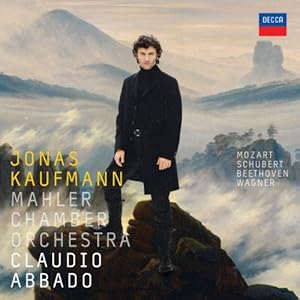
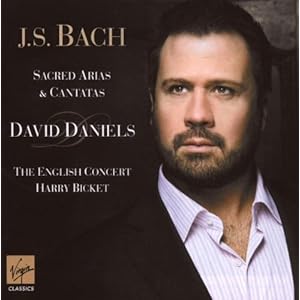
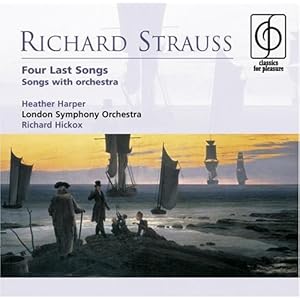
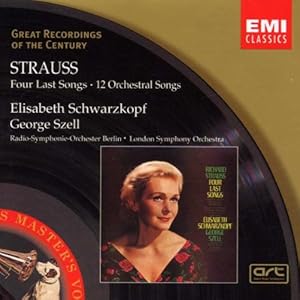

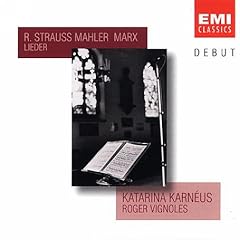
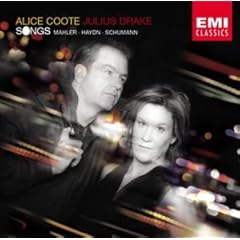
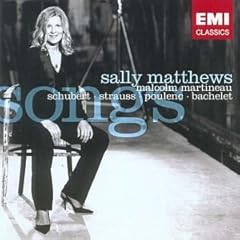
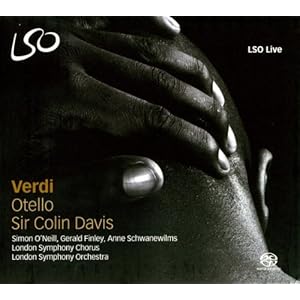
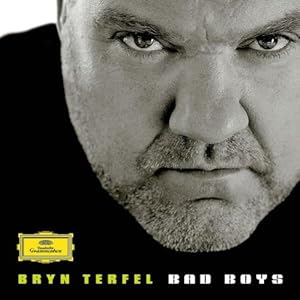
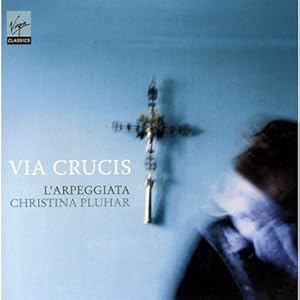
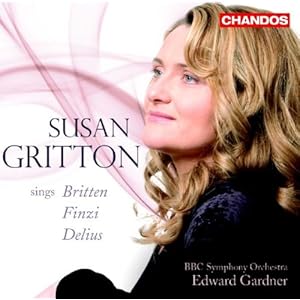
The recorded classical music blog cd is given here. Good post
ReplyDelete